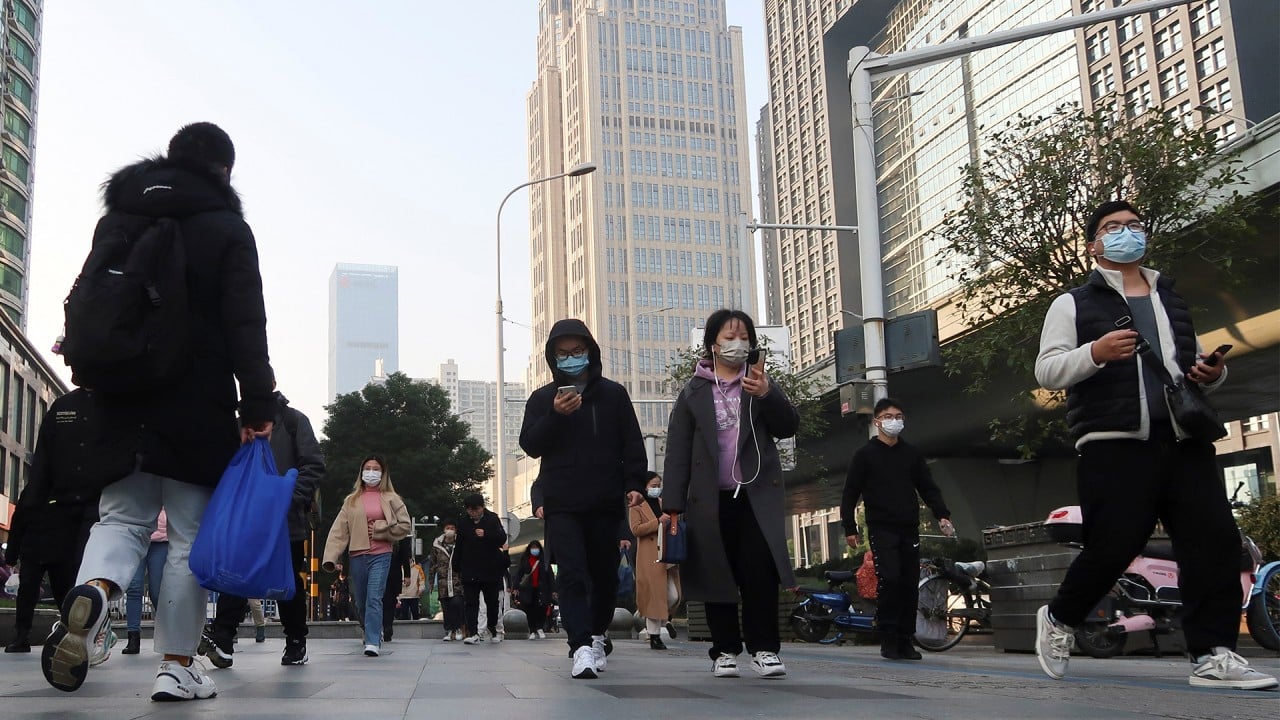
Coronavirus: China stops counting asymptomatic cases as country moves to living with Covid
- Instead of general tracing, aim is to improve cluster reports for key places to keep watch for outbreaks and virus mutations, China CDC says
- Health experts predict the coming month is critical, particularly for the elderly, as the country grapples with a surge in infections
Officials admitted there has been a discrepancy between actual and reported case numbers since the pandemic rules were relaxed.
“Except key groups and premises, people [now] get tested voluntarily. As the number of people receiving polymerase chain reaction tests reduced, the infection statistics reported by health organisations dropped accordingly,” said Li Qun, head of the Chinese Centre for Disease Control and Prevention’s emergency operations centre.
The country will step up surveillance in influenza monitoring networks at hospitals and instead of general coronavirus tracing it will improve cluster reports for key premises – such as homes for the elderly, schools and healthcare facilities – to keep watch for outbreaks and virus mutations, Li said.
China is undergoing an unprecedented wave of infections after allowing positive cases to isolate at home. Several top experts have projected that the wave will peak in a month but it may take longer for the situation to stabilise.
Beijing hospitals under pressure after China’s sudden zero-Covid switch
“The pandemic might peak in a month and it might take three to six months to overcome the wave,” he said.
Yang Zifeng, a professor at the Guangzhou Institute of Respiratory Health, predicted in a group media interview last week that the first wave after pandemic rules were wound back would occur in the southern city between early January and mid-February, and that the situation would stabilise in early March.
The duration of the coming surge, however, is still uncertain. Zhong Ming, intensive care deputy head at Zhongshan Hospital, told China Business News the end of the wave was difficult to predict.
“The coming month will be a challenging one, and protection of the elderly is key,” Zhang said, suggesting older people avoid social gatherings during the critical phase.
‘We worry’: Singapore ‘watching’ closely as China casts off zero-Covid
Following the relaxation of many coronavirus controls, authorities in China have rolled out vaccination campaigns for the elderly. Only 42 per cent of people over 80 have had a booster shot.
Beijing has also pushed local governments to increase the number of ICU beds and medical staff available, build up buffer zones and set up areas for infectious disease, to ensure there is sufficient support for the coming wave of infections.



